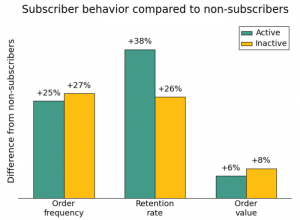By Sarah Bregel
Even though women make up slightly more than half the population of the U.S., there are significantly more male business leaders than women. As of this year, women hold only 53 out of 500 CEO positions in Fortune 500 companies. Yet, women are leaning into their business ambitions far more than before—and in some schools, MBA programs are becoming equally stacked with as many future female leaders as men.
According to a new report from Forté Foundation, a nonprofit aimed at increasing opportunities for women in business leadership, women’s enrollment in full-time MBA programs across the country is higher than ever. Fall 2023 enrollment is 42%, up from 41% last year. A decade ago, women’s overall enrollment was 34%. And in 2002, just 28% of women enrolled in business school.
Now, five business schools (four in the U.S.) have reached gender parity, according to the report. George Washington University’s School of Business is paving the way with 65% female enrollment. Both the U.K.’s University of Oxford Saïd Business School and Johns Hopkins University’s Carey Business School count women’s enrollment at 51%. And for both the Wharton School of the University of Pennsylvania and Penn State University’s Smeal College of Business, the numbers are split right down the middle at 50/50.
And three other schools are very close behind: with both Simon Business School at the University of Rochester and the University of Toronto’s Rotman School of Management at 49% female, and the Kellogg School of Management at Northwestern University at 48%.
These numbers aren’t outliers, either. Women’s enrollment in MBA programs has been on the rise just about everywhere. Thirty-four out of 58 Forté member business schools reported 40% or more women enrolled, up from 27% in 2022 and 19% in 2018. And outside the U.S., enrollment jumped three percentage points in MBA programs for the first time since Forté started reporting on the disparity in women pursuing business as a career path.
We already know women make great business leaders. Still, leveling the playing field has taken work from organizations that understand the importance of steering women toward business degrees. “Our efforts over the past two decades, along with our member schools and companies, have significantly impacted the increase in women interested in business careers and advancing to leadership,” Elissa Sangster, Forté’s CEO, said in the report.
“Every year we see about a percentage point gain in women’s enrollment, and trust me it’s not easy to achieve,” Sangster continued. “Getting to gender parity in MBA programs is an uphill climb, but it’s critical to drive change and help more women lead in the C-suite, on boards, and as business owners.”
(5)
Report Post





